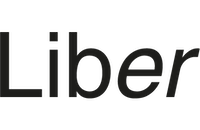To welcome your question is to answer it
The benefit of Liber is not that it answers all your questions immediately, but teaches you to relate to them without answer. Not just in the sense of: 'yes, I am aware of them and observe them,' but as in: 'I welcome, eat, taste, taste and digest them. Unconditional.
And just as Liber teaches you to deal with your questions 'blankly and non-knowingly,' it also trains you to frame your relationship with your (other) thoughts and feelings. By training you to let them enter unconditionally into the space of your 'not-knowing'. And not resisting them, no matter how they affect you.
The power of Liber
Something and nothing, that's all Liber has to offer
The power of Liber: the simplicity of its conception. You have your "something" - the presence of thoughts, feelings, questions, opinions, desires, expectations and views - and its absence, the infinite space of your "nothing.
Just two tastes, that's it. And all you have to practice is to treat anything that tastes like 'content,' like wanting, knowing, expecting, finding, feeling, striving, hoping and so on, say anything that makes a sound, moves, has a 'form,' as taste 'something.' And then to welcome it as taste 'nothing'.
The result: the content of your "something" undergoes a transformation. Because it gets the space to express itself, to feel 'seen and heard'.
And so this also applies to your questions about the Liber method itself. Such as: "does Liber work?", or "what makes Liber different from Mindfulness?" or "is Liber compatible with my daily meditation practice?" or "how long will it take before I notice anything from the Liber practice?", or "how often and for how long do you recommend I practice?".
Liber does not benefit you so much by answering your questions at a moment's notice, instantly relieving you of unpleasant feelings, or giving all your thoughts a golden edge, but by teaching you to welcome them into the space of your silent presence for it. After which then, from that encounter, a fresh, "upcycled," "something" can emerge.
For example, a question like "Does Liber work?" can transform into the insight "What a control freak I am. 'By asking "what makes Liber different from Mindfulness?" you may get better in touch with your tendency to prefer the familiar path. Under the question "how long does it take me to notice something about Liber practice?" you may discover your own impatience. And the question, "How often and for how long do you recommend I practice?" may especially speak volumes about your handling of insecurities. And each of these insights provides a wonderful trigger for yet another dialogue with your 'nothingness'.
Questions about Liber?
No better place to soak them up than in the space of your own "nothingness.
Here's how you do it:
Write down your question and also describe the feeling the question brings, or what led you to ask this very question. See if you can manage to write down up to 200 words related to this question.
Then take 5 minutes to relax. Breathe in through your nose, out through your mouth, and be all attention to, "follow," your breathing.
Now read aloud and empathetically to yourself what you have written down and again and again. Just until you feel the energy of the question change. After which you can start the exercise again at the beginning by writing down the insights that this reading aloud and listening brought you, in turn, reading aloud, listening, and so on and so forth.
The benefits of Liber
With Liber, you kill three birds with one stone.
More powerless, more human
By allowing your "not-knowing" a place in your existence, you shape how you are to begin with more completely, more honestly. You become more human. Because after all, there is a lot more a person does not know than he does know. At the core, powerlessness typifies us more than power. And where we consciously embody that, there is, by definition, more of us present.
Less hiding, more yourself
In addition, by inviting your "knowing" to manifest to its fullest extent, you also become "more yourself. Because much of what previously led a shadow existence now comes into the light.
More meek, more capable of living
The third blow: by fully accepting and welcoming into the space of your "not-knowing" your "knowing" - "come on in, come on in"-, that which you know or think you know transforms. Prejudice becomes insight, and you thus become more capable of living.
Start Now
Why put off until tomorrow what you can start right now? Your first exercise is waiting for you. Much exercise pleasure.
